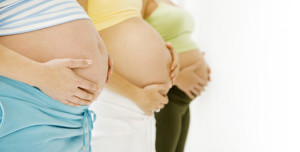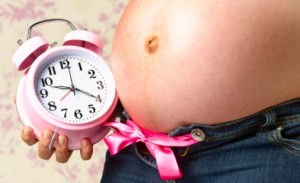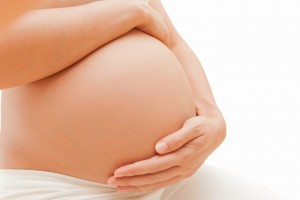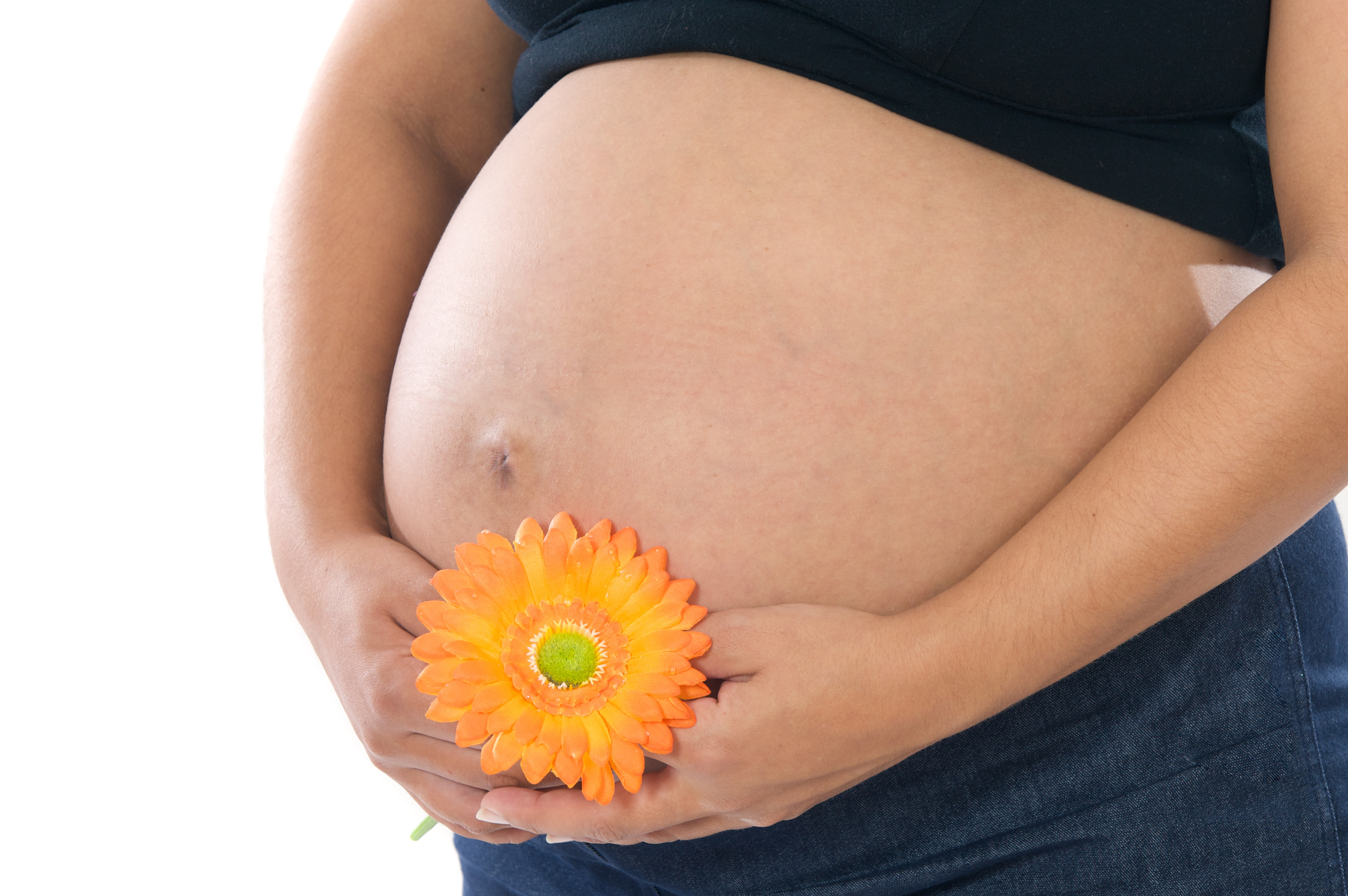Symptoms: Contractions that occur in the last few weeks of pregnancy. Inertia of the uterus. Labor delayed. Contractions have no coordination and may change in location. Labor is ineffectual. Prime indications for the remedy are the typical uterine dysfunction, with weakness and trembling, neuralgic or rheumatic pains mainly in the bladder, vagina and intestines. These pains are sharp, short and spasmodic and tend to fly about from place to place. Generally cold and worse from cold. There may also be apprehension and nervous excitability.
Medicine: Caulophyllum
 Symptoms: Contractions that occur early in the pregnancy. Pain shoots across the abdomen, causing doubling up. Uterine dysfunction with pessimism, fear, and mental fragmentation. Feels something terrible is going to happen. Terrifying memories of previous births or miscarriages. May say something like “I feel enveloped by a black cloud.” Gloomy, morose, fears insanity. Sighing. Hysteria. Pain, headache, neuralgia, rheumatism, arthritis, chilly; worse cold (except headache which improves from cold.) Nervous phenomena (nausea, insomnia, palpitations, numbness, etc..) The mental state differentiates this remedy from Caulophyllum.
Symptoms: Contractions that occur early in the pregnancy. Pain shoots across the abdomen, causing doubling up. Uterine dysfunction with pessimism, fear, and mental fragmentation. Feels something terrible is going to happen. Terrifying memories of previous births or miscarriages. May say something like “I feel enveloped by a black cloud.” Gloomy, morose, fears insanity. Sighing. Hysteria. Pain, headache, neuralgia, rheumatism, arthritis, chilly; worse cold (except headache which improves from cold.) Nervous phenomena (nausea, insomnia, palpitations, numbness, etc..) The mental state differentiates this remedy from Caulophyllum.
Medicine: Cimicifuga
Symptoms: Pain goes up the back and into the hips. Splendid remedy for dysfunctional labor with failure to dilate, especially when coupled with acute inflammation and fever, chilly, thirstless, achy muscles, great fatigue; profound muscular weakness, trembling, shivering, comes on from emotional excitement and/or anticipation. Vertigo. Face flushed and sleepy looking. “worn out” expression. Sleepy and weak during labor. Timid, quiet, reserved.
Medicine: Gelsemium
Symptoms: Specific remedy for uterine dysfunction, false labor and after pains. Keynotes are that the pains raidate from the sacrum into the pelvis and into the upper, inner thighs. Colicky, cramp-like pains.
Medicine: Viburnum opulus
Dosage: Use the 12c potency.Take every hour until the pains cease.
 Preparing for delivery
Preparing for delivery
Taking Caulophyllum in the last weeks of the pregnancy and Arnica, before delivery, will minimize much of the bruising and bleeding. Caulophyllum is also said to ‘tone up’ the uterus, helping to produce good contractions and lessening the chances of becoming over tired during labor.
Symptoms: Reduces the bruising and bleeding of normal labor.
Medicine: Arnica montana
Dosage: Arnica should be taken in the highest potency you can obtain — the 10m potency powder form if possible. If not, use the 30c potency in powder form. If you cannot obtain a powder, simply crush one tablet for one dose. Take one dose at the start of labor and one during labor just before delivery. It is useful to take a 30c dose three times a day for three days after the birth of the baby.
Symptoms: Used routinely to help uterine contractions and to bring about a smooth delivery.
Medicine: Caulophyllum
Dosage: Caulophyllum should be taken in the 30c potency — three doses on the same day each week from the 34th week onwards. There is no clinical evidence that this Homeopathic medicine causes women to go into labor too early. This is specifically mentioned because Caulophyllum in normal — that is, non-Homeopathic doses — may cause early labor. Used Homeopathically, it is given to prevent premature labor and to help normal labor.
Symptoms: May help if there was heavy bleeding in a previous pregnancy.
Medicine: Millefolium
Dosage: Millefolium should be taken in the 30c potency. Take three doses on one day in the last week of the pregnancy.
 In early labor
In early labor
A normal pregnancy lasts for 40 weeks. For a few weeks before the birth occasional painless ‘contractions’ may be felt in the lower abdomen (see False Labor above). When labor proper begins, the contractions become noticeable but may be infrequent and irregular. As labor proceeds, they become more frequent and occur at regular intervals. They may also produce some discomfort. At first they are often felt in the back. The start of labor may be indicated by a small blood loss called a ‘bloody show’.
At some stage the membranes in which the baby is contained will rupture, producing a loss of a watery fluid from the vagina. This is perfectly normal. The actual duration of labor varies tremendously, but is lengthier with a first pregnancy, so there is usually plenty of time in which to get to hospital, birth center, or for the midwife to arrive if delivery is to be at home.
Symptoms: When the labor pains are frequent, but irregular. A good remedy if restless, anxious and frightened and convinced of dying during labor.
Medicine: Aconitum
Symptoms: Painful labor, with the pain starting in lower back and radiating to inner part of the thighs.The woman may be over-excited and angry, and resent being examined. Exquisitely intolerant of pain.
Medicine: Chamomilla
Symptoms: Spasmodic irregular pains in the small of the back. Feelings of exhaustion and being out of control.
Medicine: Cocculus
Symptoms: Contractions are very painful but ineffective. The woman is restless and agitated.
Medicine: Coffea cruda
Symptoms: Intermittent, relatively painless contractions with little progress. Excessive tiredness.
Medicine: Gossypium
Symptoms: Early labor pains in back.
Medicine: Kali carbonicum
Dosage: Use the 12c potency. Take every 30 minutes until relief is maintained.
 Immediately after delivery
Immediately after delivery
The Mother’s main problems after the birth will be related to bruising in the birth passage and surrounding organs, such as the bladder and urethra.
With a prolonged labor, especially one that has caused much sleep deprivation, fatigue can also be a problem, but this is easily remedied by a good night’s sleep. The main problems after a birth by Caesarean section tend to be those that can occur after any surgical procedure.
Most of these complications are unlikely, however, if the woman has been treated with Arnica and Caulophyllum, as described above.
(See also the section on After-pains below.)
Postpartum Hemorrhage
Once a baby is delivered, the uterus normally continues to contract (tightening of uterine muscles) and expels the placenta. After the placenta is delivered, these contractions help compress the bleeding vessels in the area where the placenta was attached. If the uterus does not contract strongly enough, called uterine atony, these blood vessels bleed freely and hemorrhage occurs. This is the most common cause of Postpartum Hemorrhage (PPH). If small pieces of the placenta remain attached, bleeding is also likely.
Postpartum Hemorrhage is excessive bleeding following the birth of a baby. About 1% to 5% of women have Postpartum Hemorrhage and it is more likely with a cesarean birth. Hemorrhage most commonly occurs after the placenta is delivered. The average amount of blood loss after the birth of a single baby in vaginal delivery is about 500 ml (or about a half of a quart). The average amount of blood loss for a cesarean birth is approximately 1,000 ml (or one quart). Most Postpartum Hemorrhage occurs right after delivery, but it can occur later as well.
PPH is a medical emergency. Excessive and rapid blood loss can cause a severe drop in the Mother’s blood pressure and may lead to shock and death if not treated.
*The use of Homeopathy should be in conjunction with seeking immediate medical attention.
 Symptoms: Postpartum Hemorrhage. Bleeding is typically forceful and gushing, with bright red blood and Dark Clots. Girdle-like pains from sacrum to pubis in the process of expelling them. Retained placenta or after pains my also complicate the picture.
Symptoms: Postpartum Hemorrhage. Bleeding is typically forceful and gushing, with bright red blood and Dark Clots. Girdle-like pains from sacrum to pubis in the process of expelling them. Retained placenta or after pains my also complicate the picture.
Medicine: Sabina
Symptoms: Postpartum Hemorrhage. Bright red blood; No Clots. This remedy should be considered when other important keynotes are present such as tremendous thirst for cold drinks, fear of being alone and of the dark, open, bright suggestible patients, who are anxious, and easily reassured.
Medicine: Phosphorus
Symptoms: Postpartum Hemorrhage. Splendid remedy for the treatment of passive uterine bleeding with muscle fatigue and general exhaustion with persistent oozing of dark, this or even watery blood. . Leading indications are shock-like symptoms, as would be expected from excessive blood loss: Faintness, thirst, and extreme chilliness with nervous shivering and relief from warmth in any form. Gassy distension, headache, heightened sensitivity to touch, noise, or other external stimulation.
Medicine: China
Other Issues
Symptoms: Difficulty passing urine. Restless, sleepless and frightened.
Medicine: Aconitum
Symptoms: Constipation. Rectum feels sore and anus itches. Even a soft stool is passed with difficulty.
Medicine: Alumina
Symptoms: Problems passing urine
Medicine: Arsenicum album
Symptoms: Irritation of the vulva. Cramp-like pains occur in the uterus (womb), mainly at night.
Medicine: Caladium seguinum
Symptoms: Retention of urine, especially after a long labor.
Medicine: Causticum
Symptoms: Nervousness and restlessness.
Medicine: Chamomilla
Symptoms: Excited, oversensitive and suffers from insomnia. Abdominal pains.
Medicine: Coffea cruda
 Symptoms: Painful hemorrhoids.
Symptoms: Painful hemorrhoids.
Medicine: Collinsonia
Symptoms: Flatulence and abdominal colic.
Medicine: Nux moschata
Symptoms: Back pain. Itching between the breasts. Apathy.
Medicine: Phosporic acid
Symptoms: Hemorrhoids and anal prolapse occur.
Medicine: Podophyllum
Symptoms: Total exhaustion and overheating.
Medicine: Secale cornutum
Symptoms: To aid healing if there has been catheterization or an episiotomy.
Medicine: Staphysagria
Dosage: Use the 12c potency. Take three times a day for five days.
After pains
These pains are similar to labor pains and may occur after childbirth. They are a result of the uterus (womb) contracting as it reduces to its size before the pregnancy.
The pains are more likely to occur to Breastfeeding Mothers, as Breastfeeding causes the pituitary gland to release the hormone Oxytocin, which helps with milk production, and may also stimulate some uterine contractions. Natures way of stopping the bleeding and reducing the uterus back to it’s normal size.
Symptoms: Used routinely after all labors, especially if labor has been protracted.
Medicine: Arnica montana
Symptoms: After pains with a headache, flushed face, nervousness, restlessness.
Medicine: Belladonna
Symptoms: Soreness felt all through the pelvis, making walking and standing painful.
Medicine: Bellis perennis
 Symptoms: Severe, cramp-like pains.
Symptoms: Severe, cramp-like pains.
Medicine: Camphora
Symptoms: Spasmodic pains occur which move across the lower abdomen, especially after a prolonged and exhausting labor. Quite specifically for after-pains.
Medicine: Caulophyllum
Symptoms: Severe pain causing great irritability.
Medicine: Chamomilla
Symptoms: Intense pains like electric shocks in the groin. Agitated and intolerant of pain.
Medicine: Cimicifuga
Symptoms: Pains which feel as if they are in the intestines rather than the uterus.
Medicine: Cocculus
Symptoms: Extreme pain causing sleeplessness.
Medicine: Coffea cruda
Symptoms: Distressing after-pains after pregnancy that is not the first.
Medicine: Cuprum metallicum
 Symptoms: Anxious, apprehensive, sleepless.
Symptoms: Anxious, apprehensive, sleepless.
Medicine: Gelsemium
Symptoms: Severe after-pains shoot down the thighs and are worse on the right. Pain appears to be in the rectum or the bladder.
Medicine: Lac caninum
Symptoms: Large blood clots may be passed. Much flatulence.
Medicine: Nux vomica
Symptoms: Pain shoots forwards from behind.
Medicine: Sabina
Symptoms: A sensation of a weight in the lower bowel. Pelvic organs feel as though they are about to drop out. More often indicated after labor than in the middle of it, this is a great remedy and can relieve the characteristic heaviness and bearing down pains. Used chiefly for bleeding, retained placenta, prolapse, and other postpartum complaints. Pain radiates upwards.
Medicine: Sepia
Symptoms: Use this, if there are no other symptoms and no other Homeopathic remedy seems to fit.
Medicine: Xanthoxylum
Dosage: Use the 30c potency. Take four times a day for two days after delivery.
Note: The information here is not intended to replace medical advice offered by your Health Care Provider, Midwife or Homeopath.
Please see your health care professional.
References:
Desktop Guide by, Roger Morrison, M.D.
Homeopathic Medicines for Pregnancy and Childbirth by, Richard Moskowitz, M.D.
Homeopathy for Women by, Dr Barry Rose and Dr Christina Scott-Moncrieff, published by Collins & Brown.
*Homeopathy is also safe and effective while Breastfeeding! Homeopathy is often useful in situations such as low-milk supply and/or over-supply, sore nipples, breast infection, weaning, etc.. This is a helpful modality of healing for new Mothers, as it is completely safe while breastfeeding, and for babies and children.
Please see: www.lactation-911.com/
www.lactation-911.com/homeopathy-and-breastfeeding



Leave a Comment